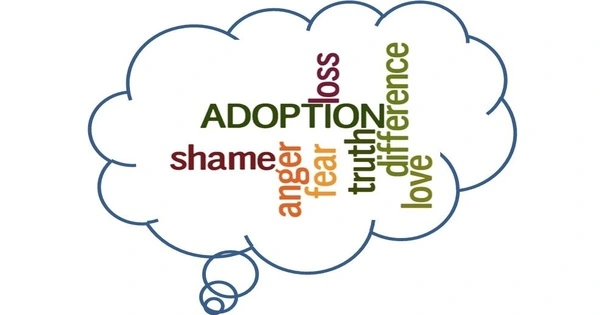A new study looks at the difficulties that adopted people face when they become parents. The study looked into the lived experiences of adopted people in the United Kingdom as they became parents. Until now, research in this area has been extremely limited, and it has tended not to include the experiences of adopted men as fathers.
According to research from the University of East Anglia, becoming a mother or father for adopted people can be extra demanding as well as extra special.
A new study is the first to look into the lived experiences of adoptees in the United Kingdom as they become parents. It discovers that they are affected by issues related to loss, rejection, abuse, and neglect that stem from their adoption and difficult experiences in the past. Many adoptees face significant challenges as teenagers and young adults as a result of their difficult early experiences.
These included issues with mental health, emotional and behavioral difficulties, education and employment, relationship issues, and substance abuse. However, for many people who were also trying to manage these challenges while parenting, becoming a mother or father was often a key turning point and motivation to turn their lives around.
Becoming a parent is a significant life experience, but research on adopted people becoming parents is limited and has tended to exclude people adopted through the child welfare system, as well as the experiences of adopted men as fathers. We wanted to better understand the issues that adopted people face as they become parents themselves.”
Prof Beth Neil
“Adoption is a life-changing event, and it is really important to understand how people are affected throughout their entire life – not just in childhood,” said lead researcher Prof Beth Neil from UEA’s School of Social Work.
“Becoming a parent is a significant life experience, but research on adopted people becoming parents is limited and has tended to exclude people adopted through the child welfare system, as well as the experiences of adopted men as fathers. We wanted to better understand the issues that adopted people face as they become parents themselves.”
The team worked with 20 adopted men and 20 adopted women – who were interviewed about their experiences. Most of the participants were in their 20s and 30s and all had been adopted under the age of 12 — with two thirds having been adopted through the child protection system. Almost a quarter of the parents in the study were not living with their children — including some who had themselves lost their children to care or adoption.

Prof Neil said: “We guided them to break down their life into key chapters and talk through the high points, the low points and the turning points that were most significant to them. We wanted to understand adopted people’s life stories in their own words. What we found is that when adopted people become parents, lots of issues can come up that link back to their adoption and to difficult experiences in their past such as issues of loss, rejection, abuse and neglect.”
“For some, having their first child meant meeting the first person in their life that they had a biological connection to. Others were afraid they would not bond with their child or that their child would reject them. Because many of the participants had a history of abuse and neglect, thinking about their birth parents often raised anxieties that they would parent their own child poorly.”
“On the other hand, there was a determination to try to break cycles of abuse, and we saw that becoming a parent was a positive turning point for many.” Because of their parents’ often difficult backgrounds, many adolescents and young adults reported problems with mental health, education and employment, substance abuse, and relationships with parents and partners.”
“These issues were frequently present when they became parents, jeopardizing their parenting and feeding their greatest fear: that they would repeat negative cycles of neglect or abuse with their own children.” Unfortunately, many adoptees were afraid that asking for help and expressing concerns would bring their parents under scrutiny.”
“Most people were doing well as parents, but a minority were still dealing with difficult issues, and a small number of parents had experienced their worst nightmare: the removal of their own children.” Not ‘breaking the cycle’ was devastating for parents who were judged incapable of caring for their own children.”
According to the researchers, support for adopted adults with mental health issues is an especially pressing need, because parental mental health issues are a strong mediating factor in the link between childhood adversity and compromised parenting.
When adoptees become parents and are still dealing with these issues, they require additional support. However, the adoption system should recognize the need to provide support to adoptive families much earlier on, in order to avoid the difficulties that often arise during the adolescent years.
The study discovered that the issues raised by men and women regarding identity were very similar. This is significant because almost all previous research had only looked at mothers. Fathers, on the other hand, were deeply affected by the impact of adoption on their lives, and issues related to adoption surfaced for them when they became fathers.
















